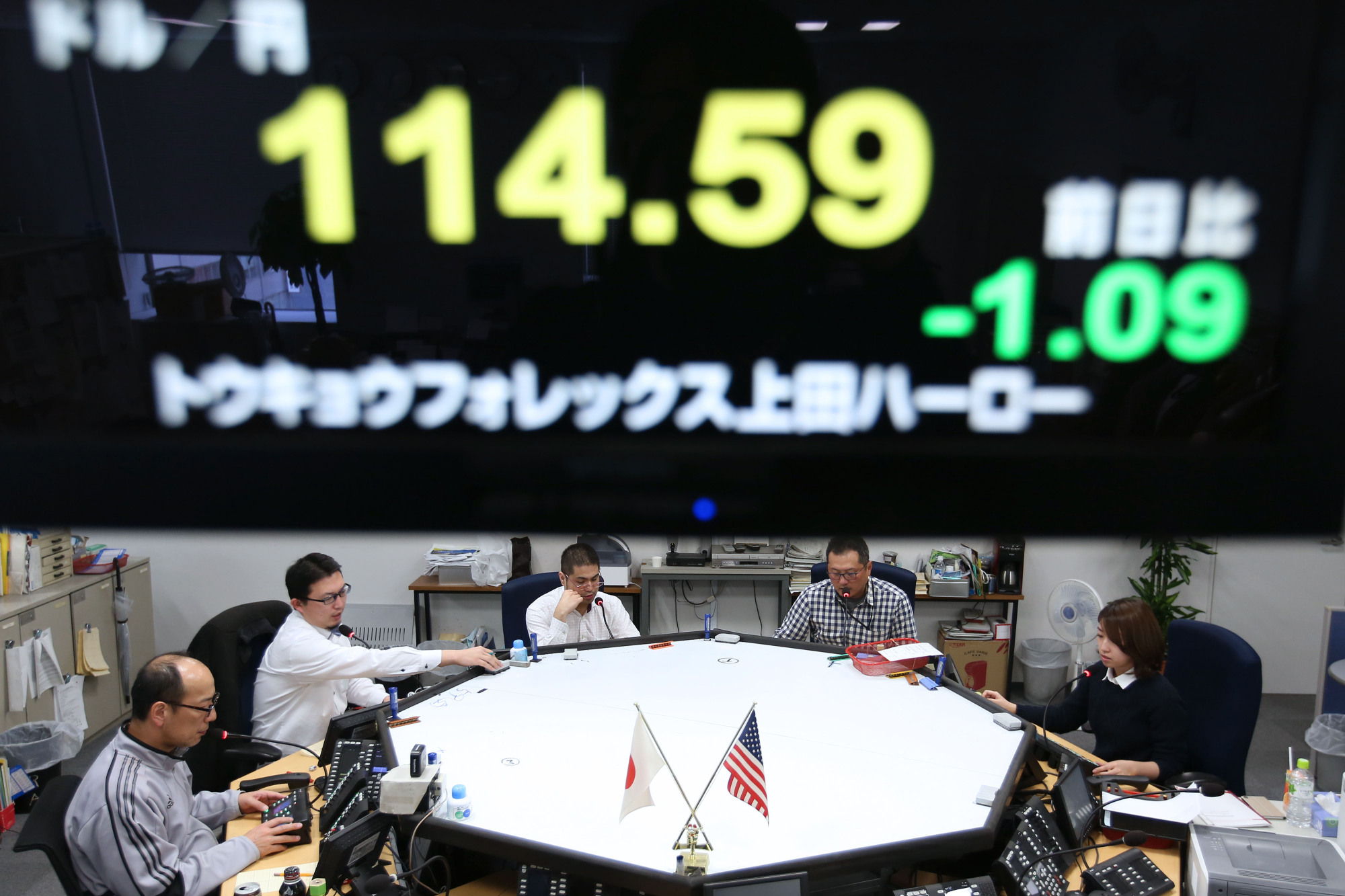It's been five years since politics captured much attention from the foreign-exchange world in Japan, but traders are now gaming out potential scenarios for the yen after the Oct. 22 general election.
The consensus view is still for Prime Minister Shinzo Abe's coalition to sail to a comfortable third-straight majority in the Lower House, ensuring years more of Abenomics and the weak yen it's produced. Even so, the situation is more fluid than anticipated just months ago, with the sudden rise of new political parties that — with a plurality of voters undecided — could yet deal Abe a setback that calls into question his tenure at the head of his party.
The new Kibo no To (Party of Hope), led by Tokyo Gov. Yuriko Koike, hasn't yet laid out the details of where it stands on monetary policy — saying it favors maintaining the nation's unprecedented easing for now, but that it doesn't want to rely too much on monetary easing and wants to work with the Bank of Japan on a smooth exit strategy. Many in the currency-strategy world assume that if Koike's group gains major ground, it would strengthen the yen and hit Japanese equities.



















With your current subscription plan you can comment on stories. However, before writing your first comment, please create a display name in the Profile section of your subscriber account page.